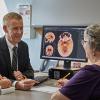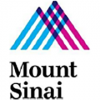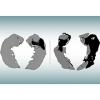27 June 2022
UTHealth Houston Study: Flu Vaccination Linked to 40% Reduced Risk of Alzheimer’s Disease
People who received at least one influenza vaccine were 40% less likely than their non-vaccinated peers to develop Alzheimer’s disease over the course of four years, according to a new study from UTHealth Houston. Research led by first author Avram S. Bukhbinder, MD, a recent alumnus of McGovern Medical School at UTHealth Houston, and senior author Paul. E. Schulz, MD, the Rick McCord Professor in Neurology at McGovern Medical School, compared the risk of Alzheimer’s disease incidence between patients with and without prior flu vaccination in a large nationwide sample of US adults aged 65 and older.
23 June 2022
Poor Sleep and Nighttime Wakefulness Associated With Diminished Cognitive Function Among African Americans, Study Finds
More fragmented sleep and longer periods of wakefulness after bedtime among a group of low-income African American adults were associated with lower cognitive function such as poor attention, according to a new study. Studying people over a five-year period, researchers from the RAND Corporation and the University of Pittsburgh found that those whose sleep worsened over time had poorer attention, executive function and visuospatial ability.
30 May 2022
Quantifying Cognitive Decline in Dogs Could Help Humans with Alzheimer’s Disease
Researchers have found that a suite of complementary tests can quantify changes in dogs suspected of suffering from cognitive decline. The approach could not only aid owners in managing their elderly canine’s care, but could also serve as a model for evaluating cognitive decline progression in – and treatments for – humans with Alzheimer’s disease.
1 May 2022
New JAD Board Appointments
We are pleased to announce new appointments to the JAD Editorial Board, which means we have an equal number of female and male representation within the senior team (i.e. looking at only the positions of Deputy Editor and Editor-in-Chief).As announced recently, the journal supports the IOS Press Diversity and Inclusion Statement and we are making changes relating to SDG 5 (gender equality) and SDG 10 (reduced inequalities) in terms of diversity.
29 April 2022
New Research Identifies Blood Biomarker for Predicting Dementia Before Symptoms Develop
New research from NUI Galway and Boston University has identified a blood biomarker that could help identify people with the earliest signs of dementia, even before the onset of symptoms. The researchers measured blood levels of P-tau181, a marker of neurodegeneration, in 52 cognitively healthy adults, from the US-based Framingham Heart Study, who later went on to have specialized brain PET scans. The blood samples were taken from people who had no cognitive symptoms and who had normal cognitive testing at the time of blood testing.
4 April 2022
Late-Onset Alcohol Abuse Can Be a Presenting Symptom of Dementia, Researchers Find
Patients who start abusing alcohol later in life – after age 40 – may be doing so secondary to an underlying neurologic condition, such as frontotemporal dementia, according to findings by a team of researchers from the Icahn School of Medicine at Mount Sinai and the University of California, San Francisco.
31 March 2022
Damage to Inner Ear System Predicts Fall Risk Among People with Alzheimer’s Disease
A Johns Hopkins Medicine study of about 50 people with Alzheimer’s disease has added to evidence that damage to the inner ear system that controls balance is a major factor in patients’ well-documented higher risk of falling. Overall, the researchers say, their study found that impairment of the vestibular system was linked to a 50% increase in the risk of falling for patients with Alzheimer’s compared with patients who have Alzheimer’s and normal vestibular function.
9 March 2022
Baycrest-Led Audiology Study Finds Screening Memory Clinic Patients for Hearing Loss Helps in Physicians’ Management of Important Risk Factors for Dementia
A new study led by a Baycrest clinician-scientist titled “Enhancing Clinical Visibility of Hearing Loss in Cognitive Decline” demonstrated that point of care screening for hearing loss in patients of a memory clinic raised physicians’ awareness of its high prevalence among their patients and led to more frequent referrals for hearing help.
4 March 2022
Damage Early in Alzheimer’s Disease Identified via Novel MRI Approach
Alzheimer’s disease usually is diagnosed based on symptoms, such as when a person shows signs of memory loss and difficulty thinking. Up until now, MRI brain scans haven’t proven useful for early diagnosis in clinical practice. Such scans can reveal signs of brain shrinkage due to Alzheimer’s, but the signs only become unmistakable late in the course of the disease, long after the brain is significantly damaged and most people have been diagnosed via other means.
14 February 2022
Lower Acculturation Linked with Poorer Cognitive Function in Older Hispanics
A new study on culture and cognition found that long-term Hispanic immigrants who were less acculturated to the US performed significantly worse on cognitive function tests than their highly acculturated peers. A team of researchers led by scientists at the University of Illinois Urbana-Champaign assessed the acculturation levels and cognitive function of more than 600 Hispanics age 60 or older who were born in or had immigrated to the US.
















